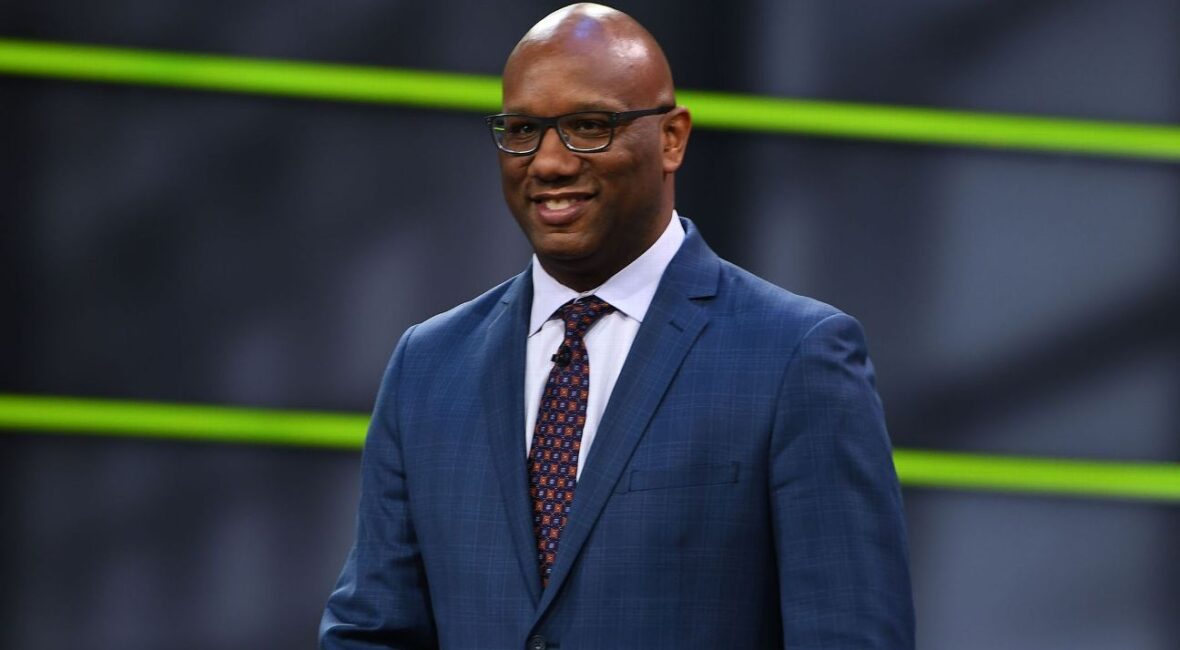Cleveland Browns coach Kevin Stefanski made it clear despite a 38-7 loss to the Pittsburgh Steelers that Baker Mayfield remains his starting quarterback, assuming he’s healthy.
Battling a rib injury that limited him in practice all week, Mayfield struggled Sunday, throwing a pick-six on Cleveland’s third offensive snap, setting the tone for the Pittsburgh rout.
Everything you need this week:
• Full schedule » | Standings »
• Depth charts for every team »
• Transactions » | Injuries »
• Football Power Index rankings »
More NFL coverage »
Taking multiple big shots from the Steelers, Mayfield was especially inefficient on third down and while facing the blitz. On third downs, he went just 2-of-7 passing for 5 yards with a sack and two picks; when facing the blitz, Mayfield completed 2 of 6 passes for only 11 yards with an interception and three sacks.
Stefanski finally replaced Mayfield late in the third quarter with backup Case Keenum, but attributed the move to the 24-point deficit and to Mayfield’s ailing ribs.
“I didn’t want to see him get hit one more time,” said Stefanski, who shouldered much of the blame for Mayfield’s ineffective performance. “I know this, I didn’t do a good enough job allowing him to be put in [successful] positions. I have to do way better. I can’t let him get hit like that.”
Mayfield now has 11 career game with multiple interceptions. Only
Cleveland wide receiver Odell Beckham Jr. tested negative for COVID-19 again, which cleared the way for him to reenter the Browns’ practice facility Saturday and play Sunday in Pittsburgh, a source told ESPN.
Beckham was sent home Thursday with an unknown illness and was away from the team Friday as well, despite repeatedly testing negative for COVID-19.
Coach Kevin Stefanski said Friday that Beckham was feeling better and had been participating in all meetings remotely since falling ill. Stefanski said the Browns planned to have individual meetings with Beckham on Saturday to get him up to speed on the game plan for the Steelers.
PITTSBURGH — The Pittsburgh Steelers (4-0) will be without two starters, receiver Diontae Johnson (back) and veteran right guard David DeCastro for Sunday’s AFC North game against the Cleveland Browns (4-1).
With Johnson out, rookie Chase Claypool, who scored four touchdowns against the Eagles, is slotted for an increased role — as has been the case after Johnson’s back injury and earlier concussion. In Johnson’s absence a week ago, Claypool caught three touchdown passes and rushed for another score, becoming the first rookie in NFL history to do so.
Vaughn McClure, a member of ESPN’s NFL coverage team since 2013, died this week at his home near Atlanta. He was 48.
McClure joined ESPN to cover the NFL, and he settled in on the Atlanta Falcons beat as part of NFL Nation. He covered the team during its run to Super Bowl LI in 2017. He contributed to ESPN’s television and radio coverage of the Falcons and the NFL as well.
“We all loved Vaughn,” said John Pluym, senior deputy editor for digital NFL coverage at ESPN. “He had a heart of gold. He was so helpful to our reporters. In the last few hours, we’ve heard so many stories about how Vaughn had helped them with a story or how he put in a good word for them with a coach or player.”
Pluym added: “Talking to Vaughn on the phone was always a joy. I loved how you could just sense the excitement in his voice for being able to cover the Falcons for ESPN. We will all miss him greatly. And I’ll end this the way Vaughn ended every phone call with a colleague: ‘Appreciate you. Love you.’ We all loved him, too.”
Tributes to McClure quickly spread on social media after news of his death, with Hall of Famer Brian Urlacher among those sending condolences. “Today I was very saddened to hear about the passing of my dear friend Vaughn McClure,” he wrote. “We became fast friends when he was covering the Bears. He had a big heart and was one of the nicest guys you will ever meet. You will be missed.”
The Atlanta Falcons, in a statement, said: “We are saddened to learn of the passing of ESPN’s Vaughn McClure. He was an earnest, thoughtful reporter who had a passion for his craft and the relationships he held. He will be missed dearly and we are holding his family, friends and associates in our thoughts and prayers.”
McClure came to ESPN after covering the Bears for the Chicago Tribune for six seasons.
“People will probably remember how Vaughn was able to connect and develop trusting relationships with many of the athletes he covered, or how diligent he was about deadlines, or the countless times he volunteered to help out a colleague on another sport,” said Patricia Mays, senior director of content strategy and distribution at ESPN, who brought McClure to the company. “But what I respected most was how committed he was to continually improving. One of the last emails I received from him was asking for feedback. He wrote: ‘Would love to talk to you after the season about how I can get better at a lot of things. I want to be great at this job.'”
Among his other assignments while at the Tribune was covering the Bulls in the postseason. Previously, he covered Notre Dame football for the Chicago Sun-Times and Fresno State basketball for The Fresno Bee. He also worked at the South Bend Tribune and DeKalb Daily Chronicle.
McClure, who graduated from Northern Illinois University in 1994, was a Chicago native.



